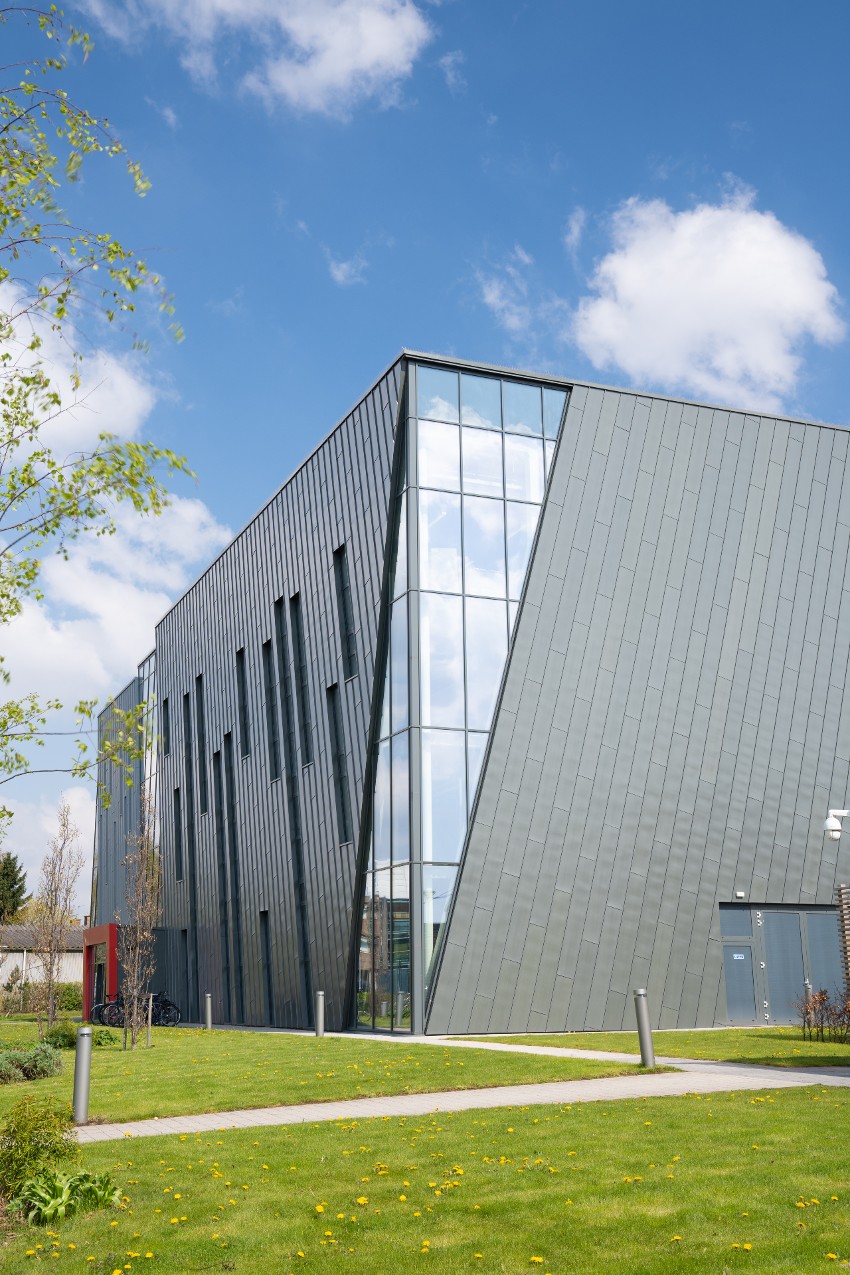As part of the continued drive towards net zero, researchers in the University of Nottingham's Faculty of Engineering have received two million pounds in funding to create a one-of-a-kind smart energy grid.

When complete, the DC microgrid, which will be installed in between the Power Electronics, Machines and Control (PEMC) and Research Acceleration and Demonstration (RAD) buildings on Jubilee Campus, will utilise multiple energy storage technologies that will reduce the site's energy bill and enable many of its testing activities to achieve Net Zero.
Funded by Research England through the UKRPIF: Net Zero pilot initiative, the Future Energy Efficiency with DC Microgrid Technologies (FEED-MT) project aims to feed energy to the PEMC building to use renewable energy sources and flatten energy demand spikes when high load testing is taking place, store hydrogen for use by the RAD building, and act as a self-contained, low-carbon power network.
The grid will be made up of multiple photovoltaic (PV) solar panels stored either in batteries or via an electrolyser and converted to hydrogen that is stored. When extra demand is required, the battery will be able to feed the PEMC or convert hydrogen to electricity via a fuel cell that forms part of the microgrid. In addition, stored hydrogen will be fed directly for use by the RAD building as well.
Professor Pat Wheeler, Head of the PEMC Research Group at the University of Nottingham, said: "We're thrilled to have been awarded this funding to help make both buildings greener, a goal that sits at the heart of the faculty's strategy and is also incredibly important to many of our customers and partners in the industry."
As one of the first institutions to bring these different elements of energy storage together in this way, we're keen to educate others in the sector as to how they can embrace this technology to suit their own needs as well.
Installation of the grid is already underway with some of the new technologies already on site, including the PV solar panels that will be installed on the roof of the PEMC and an industrial sized battery system.
Professor David Grant, Director of the University of Nottingham Energy Institute, said: "Researchers based in both the PEMC and RAD buildings are undertaking significant research in power electronics machines and control, and hydrogen storage and its utilisation."
To be able to put an integrated system in place that enables this research to continue in an even more environmentally friendly way is a huge step forwards for our green credentials and has been a fantastic opportunity for both groups to collaborate as well.






